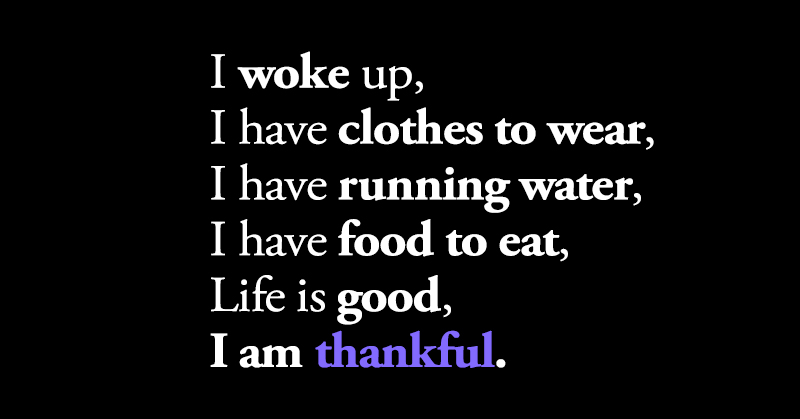We’ve all had days when the morning didn’t go well. We woke up tired, weren’t sure which task to tackle first, ate a poor breakfast, procrastinated, and the dreary mood continued into the afternoon. These days are unproductive slogs; we don’t get much work done, and we can’t enjoy any rest or self-care since we are stressed about the work we are not doing. It’s a negative cycle that can badly affect a person’s mental health.
Many life and productivity gurus may have a system to avoid these days, but the solution can be as simple as asking yourself a few questions soon after you wake up. These four questions will focus your mind on what you want to accomplish, what’s important to you, and create an optimistic mindset to carry you through the rest of the day.
4 Questions You Should Ask Yourself Every Morning
1. How do I feel?
Bestselling author Maggie Stiefvater of The Raven Boys and The Scorpio Races discusses productivity for people suffering from mental health and chronic health issues. She had suffered from multiple issues including hookworms in her face while she was on a deadline for her book, All the Crooked Saints. On Facebook, she describes forcing herself to write for 12 hours a day to eke out a few sentences.
“I’m telling you all this because I was wrong,” she writes.
After the hookworms got removed and she was slowly healing, she got the advice to start a journal and every morning write what percentage she felt that day, say 20% or 80%. At the end of the day, she wrote down what she accomplished. This is not for “see how well I did on a 20% day!” It’s a guideline.
“Eventually you’ll have a guide so when you wake up and you’re at 20%, you won’t try to do the things you do on a 40% day,” Stiefvater explains. “You’ll know you can just go watch a movie or sit with your goats or whatever and not feel guilty because you were never going to write words you could keep or be able to exercise or whatever.” [1]
Since she focused on writing on 60% and 80% percent days, she had more time to do research, find doctors, and improve her health. And on 20% days, she allows herself to consume art instead of creating it.
You don’t need to be suffering from a horrible health condition to take this approach. Everyone has good days and bad days, and it’s good for one’s mental health to distinguish them and set proper expectations.
So in the morning, check-in with yourself. Give your current health and headspace a percentage or some other measurement, and plan accordingly. Push yourself to work hard on the good days and push yourself to take it easy on the bad days.
2. What am I going to do?
Now that your energy levels have been established, review all of the things you want to accomplish, whether it’s something unnegotiable like a doctor’s appointment or showing up at work, or something more flexible like calling a friend you haven’t spoken to in a while, or a habit you’d like to build like working out.
If the tasks feel overwhelming, write them down. Most of the time, the daily to-do list seems less stressful when it’s on paper where you don’t need to worry about forgetting anything. Even if you don’t look at the list throughout the day, the act of writing everything down can help you focus and feel ready for the day. This means less time procrastinating and wasting time since you know everything you have to do. [2]
3. What’s important to me?
Take the focus away from the ‘must-do’s’ and towards your mental health. Make sure activities you enjoy and find fulfilling are on the list. For some people, that means skipping on organizing the kitchen to make time for drawing, walking, meditating, or catching up with a friend; for others, that means skipping on TV to clean the closet that has been bugging them for ages.
This does not mean do whatever you feel like. It means do whatever you need to improve your mental health. Oftentimes we are not in the mood to take a walk or a shower, but feel better afterward. During the time of quarantine, this often involves picking up the phone and connecting to other people, yes, even the introverts. Community and human contact are crucial for good mental health and during a time where most people can’t interact as per usual, it should be prioritized. So even if you’re not quite in the mood of talking, call a friend or family member you enjoy speaking with. You’ll feel good you did it afterward. [3]
4. Will today be a good day?
Most of us feel like we have completely lost control during this pandemic. The future is uncertain, and that’s terrifying. But we can control one thing: our attitudes. And our attitudes can create a good day out of a mediocre one. [4]
Instead of using this scary time to complain and lament all that we have lost, think of it as an opportunity to try new things, to find creative solutions, and to challenge ourselves. A time of global panic is when our mettle is tested, and we all want to come out on top.
So ask yourself, “Will today be a good day?” and answer “yes!” Even if the day goes downhill, it’ll be heartening to begin each day with an optimistic outlook.
- Maggie Stiefvater Author Page. Facebook. https://www.facebook.com/MaggieStiefvaterAuthorPage/photos/q-hey-maggie-do-you-have-any-advice-for-handling-chronic-pain-in-a-general-sense/10158074559239466/ August 23, 2018
- Louise Chunn. The psychology of the to-do list – why your brain loves ordered tasks. The Guardian. https://www.theguardian.com/lifeandstyle/2017/may/10/the-psychology-of-the-to-do-list-why-your-brain-loves-ordered-tasks May 10, 2017
- Maria Cohut, Ph.D. What are the health benefits of being social? Medical News Today. https://www.medicalnewstoday.com/articles/321019 February 23, 2018
- Brianna Steinhilber. How to Train Your Brain to Be More Optimistic. NBC News. https://www.nbcnews.com/better/health/how-train-your-brain-be-more-optimistic-ncna795231 August 24, 2017

